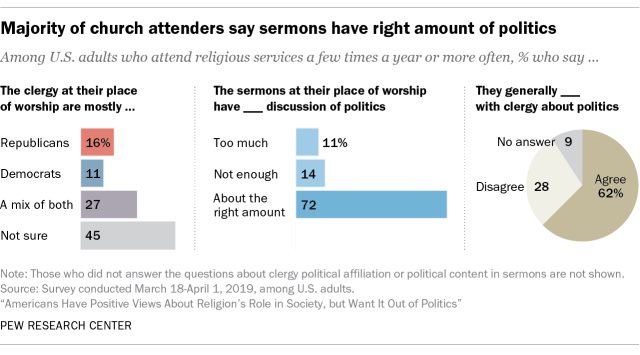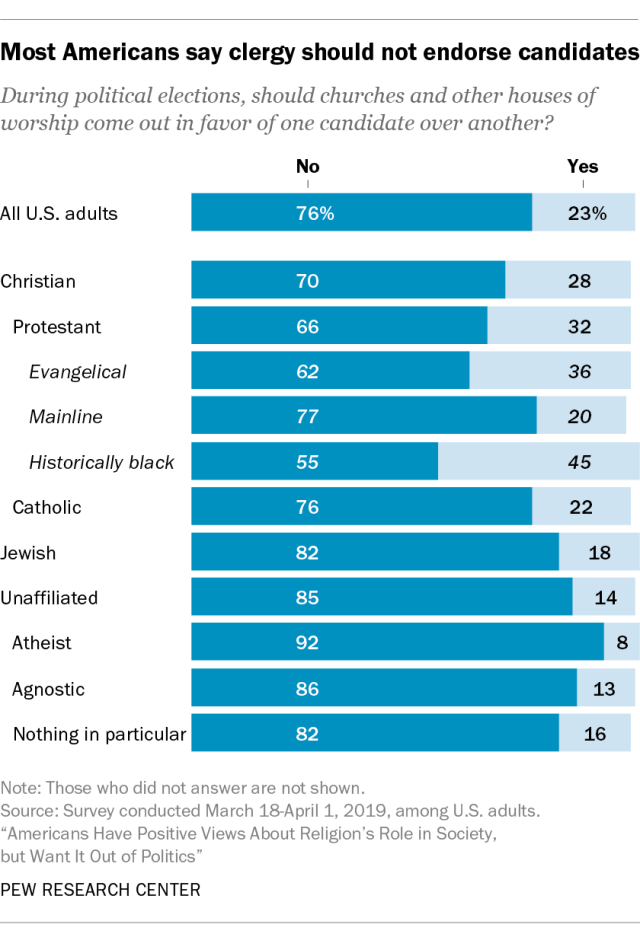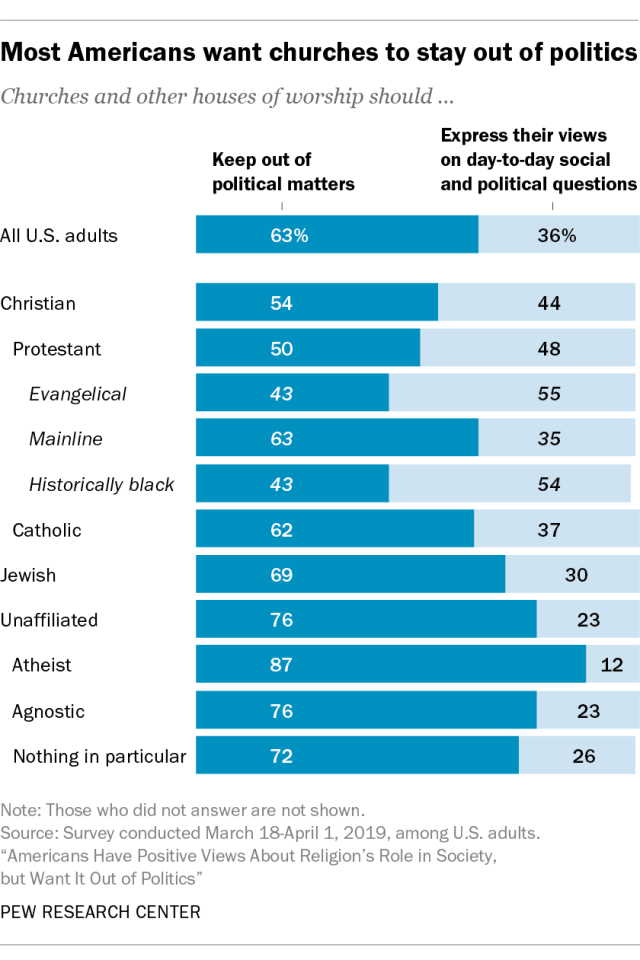
During election years, many Americans hear at least something about politics at their place of worship. But a recent Pew Research Center survey finds that churches and other houses of worship are not strongly political environments, at least according to the people in the pews.
Among U.S. adults who attend religious services a few times a year or more often, almost half (45%) say they’re not sure whether the clergy at their congregation are Democrats or Republicans, and roughly a quarter (27%) say their clergy are a mix of both. When congregants think they know the political affiliation of their religious leaders, 16% say their clergy are mostly Republicans, while a slightly smaller share say they are mostly Democrats (11%).
Nevertheless, the majority of churchgoers share the opinions of their clergy when politics are discussed: 62% of Americans who attend religious services at least a few times a year generally agree with their clergy about politics. Evangelical Protestants are particularly likely to do so (76%), compared with fewer who say this in the historically black Protestant (65%), mainline Protestant (58%) and Catholic traditions (53%).

For this analysis we surveyed 6,364 U.S. adults in the spring of 2019. Everyone who took part in the survey is a member of Pew Research Center’s American Trends Panel (ATP), an online survey panel that is recruited through national, random sampling of residential addresses. Recruiting our panelists by phone or mail ensures that nearly all U.S. adults have a chance of selection. This gives us confidence that any sample can represent the whole population (see our Methods 101 explainer on random sampling).
To further ensure that each survey reflects a balanced cross-section of the nation, the data is weighted to match the U.S. adult population by gender, race, ethnicity, partisan affiliation, education and other categories. Read more about the ATP’s methodology.
Additional details are available in the survey’s methodology. Full details on question wording can be found in the topline questionnaire (which also includes other questions asked in the survey).

More broadly, respondents are satisfied with the amount of political talk they’re hearing from the pulpit. Among Americans who attend worship services a few times a year or more often, 72% say there is about the right amount of political discussion in sermons, while fewer say there’s too much (11%) or not enough (14%). (The survey didn’t ask how often politics are discussed at places of worship – just whether respondents were satisfied with the amount they hear.)
Among American adults as a whole – including those who attend worship services and those who don’t – majorities say that religious organizations should stay out of politics and that they shouldn’t endorse political candidates.
Around three-quarters of U.S. adults (76%) say churches and other houses of worship should not come out in favor of candidates during elections. Protestants in the historically black tradition (a majority of whom are Democrats or lean toward the Democratic Party) and evangelical Protestants (a majority of whom are Republican or lean toward the Republican Party) are more inclined than other major U.S. religious groups to say church endorsements are OK.
 Many Americans are uncomfortable not only with clergy endorsing candidates from the pulpit at election time, but also with churches and other houses of worship speaking out on day-to-day social and political questions. Overall, more than six-in-ten U.S. adults say places of worship should keep out of political matters (63%); only 36% think they should express their views on day-to-day social and political issues.
Many Americans are uncomfortable not only with clergy endorsing candidates from the pulpit at election time, but also with churches and other houses of worship speaking out on day-to-day social and political questions. Overall, more than six-in-ten U.S. adults say places of worship should keep out of political matters (63%); only 36% think they should express their views on day-to-day social and political issues.
Protestants in the evangelical and historically black traditions are the only major U.S. religious groups in which more people say churches should express their social and political views. Only about a third or fewer in other religious groups share this view.
Note: Here is the list of questions asked for this report, along with responses and methodology.



